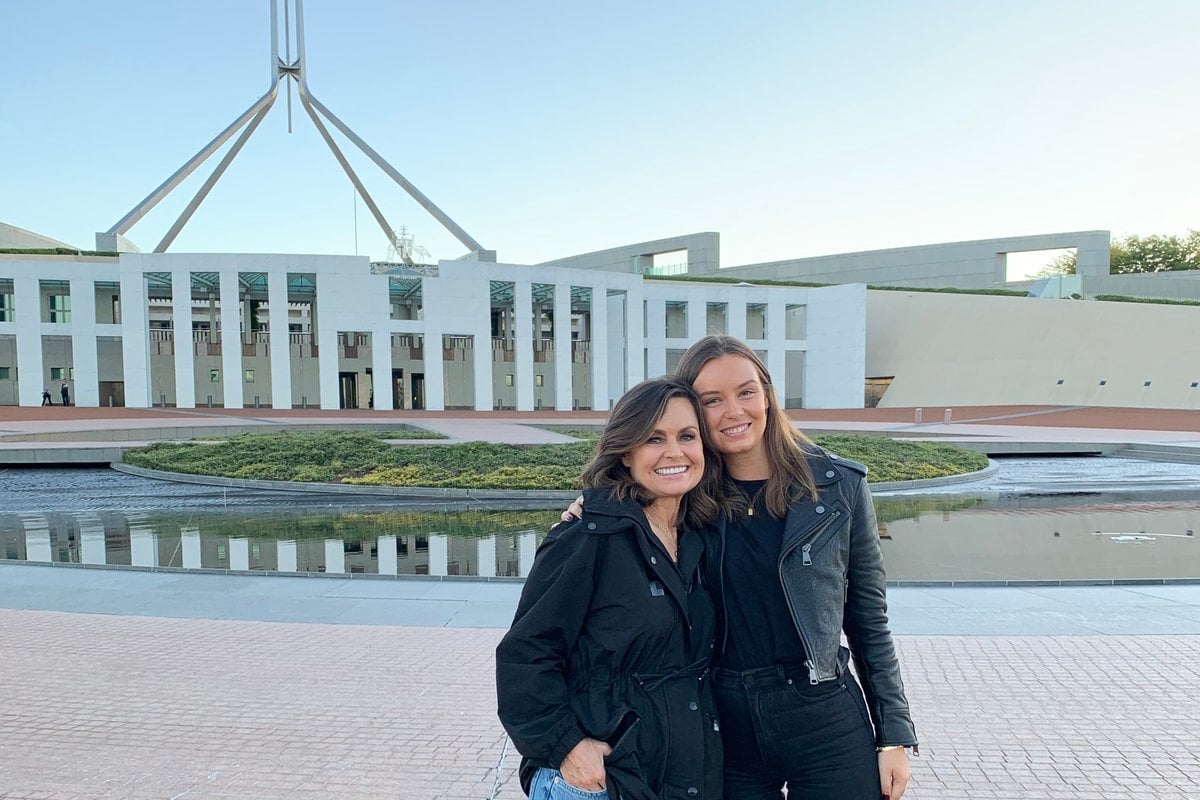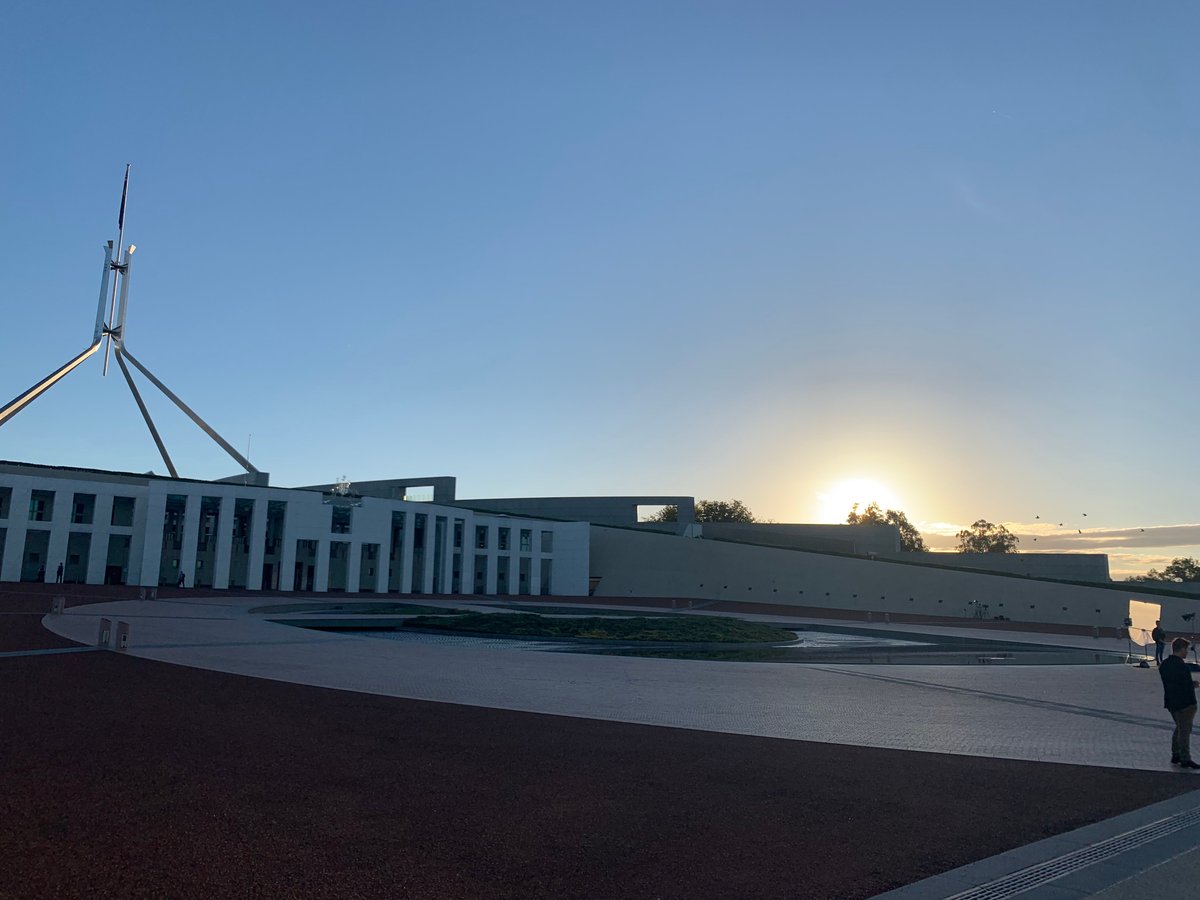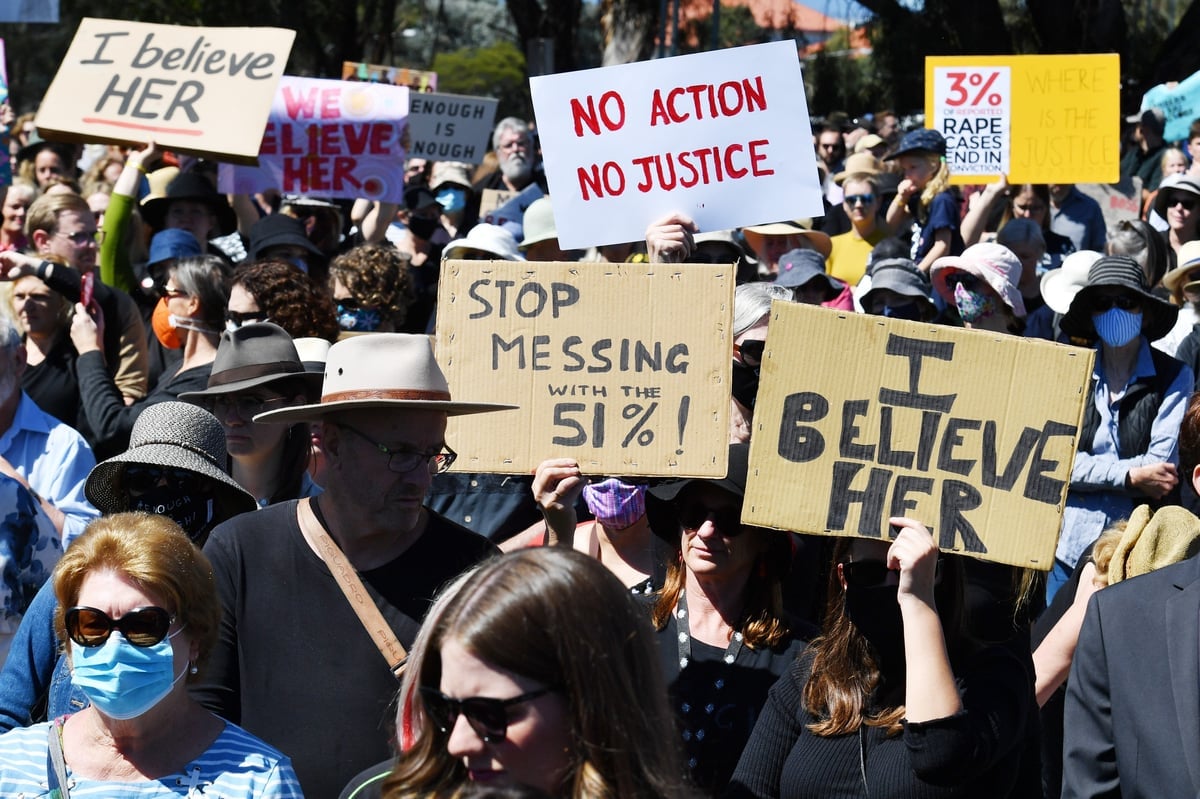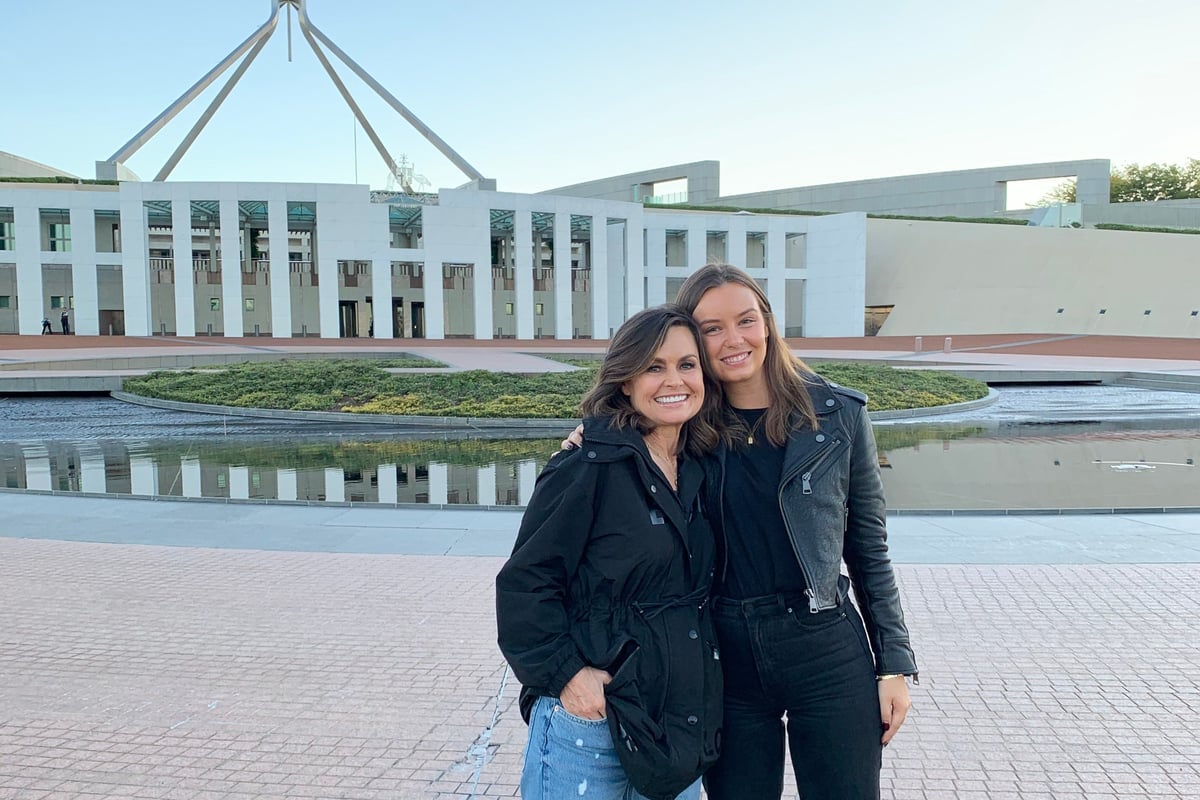
I stood outside Parliament House last night as the last rays of the sun set on an extraordinary day. I was mesmerised, as ever, by the grandeur of this epicentre of Australian democracy.
By 7pm, the thousands upon thousands of women and some men who had packed the ‘March For Justice’ rally hours before had long gone. All that was left was the building - a building, for many, that right now represents a convenient hiding place for those who continue to dismiss, or simply sweep away, the epidemic of violence against women that continues to exist in this country.
It was an eerie quietness that befell Canberra. After the crowds left, the air of rage and echoes of all those passionate voices had somehow remained, as well as the vision of all those signs held by children as young as three alongside women well into their eighties. One that stuck, read: “We are the granddaughters of the witches you failed to burn.”
 A photo outside Parliament House at 7pm on March 15, hours after the 'March For Justice' rally in Canberra. Image: Supplied.
A photo outside Parliament House at 7pm on March 15, hours after the 'March For Justice' rally in Canberra. Image: Supplied.



Top Comments
Thanks so much Jacinda! It was a very moving march.
Thank you!